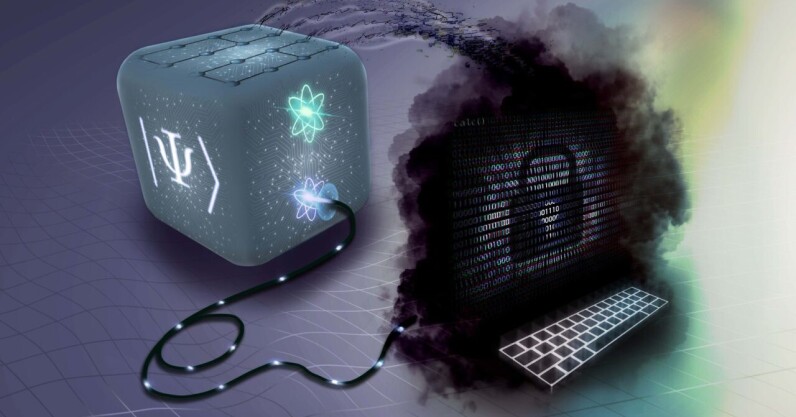
Hey, have you ever stumbled upon something called hybrid matter-photon implementation of verifiable blind quantum computing? Sounds like a science fiction title, right?
Well, it turns out it’s not just plot material for your next favorite sci-fi novel. It’s a breakthrough that might just open the doors of quantum computing to, believe it or not, “millions of individuals and companies” without risking their data. And who do we have to thank for this? The brilliant minds over at Oxford University Physics.
So, picture this: You’re cozy in your living room, trying to access the cloud to communicate with a quantum computer halfway across the globe. How can you do this without the quantum server having a clue about who you are or what you’re asking it to compute? The UK Quantum Computing and Simulation Hub has the answer and they claim it’s a major leap forward.
This might seem like a nerdy detail in the grand scheme of things but, in a world where the big guns are fighting tooth and nail over the power to develop top-notch algorithms, it’s a big deal.
On the frontlines of this revolution, industries like pharmaceuticals that survive on keeping their information under lock and key are expected to be the first to dip their toes into hybrid quantum-classical systems.
What’s the Deal with Blind Quantum Computing?
Imagine being able to tap into quantum computing power from the comfort of your bed through companies like Google Quantum AI or IBM Q Experience. The catch? Beyond the headache of ensuring data reliability, there’s this pesky issue of keeping your data safe from prying eyes. But the folks at Oxford have a trick up their sleeve to tackle these fears head-on.
They’ve literally linked a quantum computing server to a photon-detecting device, cutting out the need for the server to know who’s on the other end or what’s being calculated. It’s like sending secret messages where even if someone intercepts, all they get is gibberish.
This setup not only promises to keep your requests to the quantum server under wraps but also lets you in on the action without needing any quantum tech know-how yourself. Just hit send and voila! The server crunches the numbers and sends back the sealed results.
Dr Peter Drmota, leading the charge in this study, shares an exciting vision where clients can use quantum services to whisk their data through computations in secret, verifying the results without giving anything away. It’s like having your quantum cake and eating it too!
And get this, the practical upshot could be as simple as plugging a device into your home computer, making it quantum-ready while keeping your data as secure as a treasure chest. (Remember the good old days of USB sticks?)
Quantum Computing: The New Frontier of Privacy
Right now, quantum computers might not be on everyone’s Christmas list, mostly finding action in labs for high-level experiments. But, according to these researchers, the day when they’ll revolutionize what we can do online isn’t just a pipe dream. The privacy aspect, in particular, could see a massive overhaul thanks to blind quantum computing.
The prospect of quantum computing ushering in an era of uncrackable encryption is thrilling, and, yes, a tad intimidating – it has the power to either solidify or completely dismantle our current internet security. Yet, this early-stage tech, with its promise of keeping our cloud interactions under wraps, is a glimmer of hope in the ongoing battle for digital privacy.